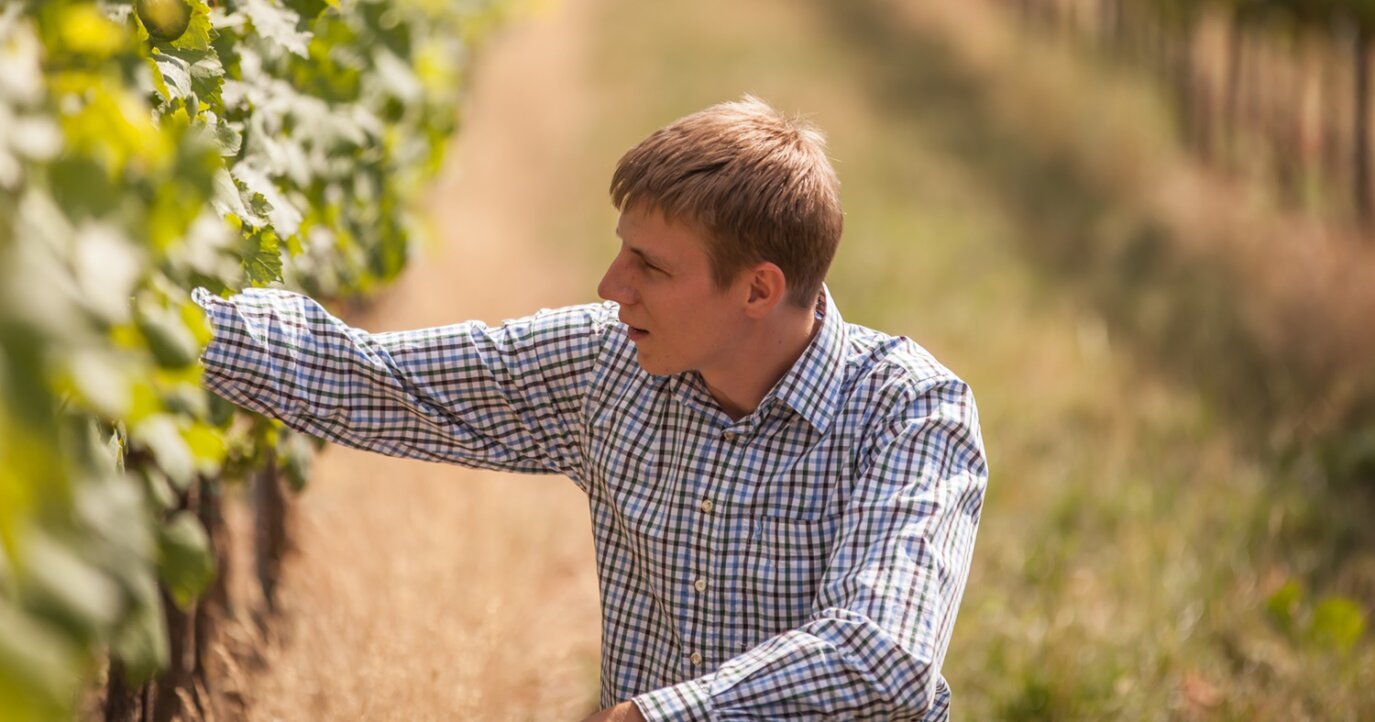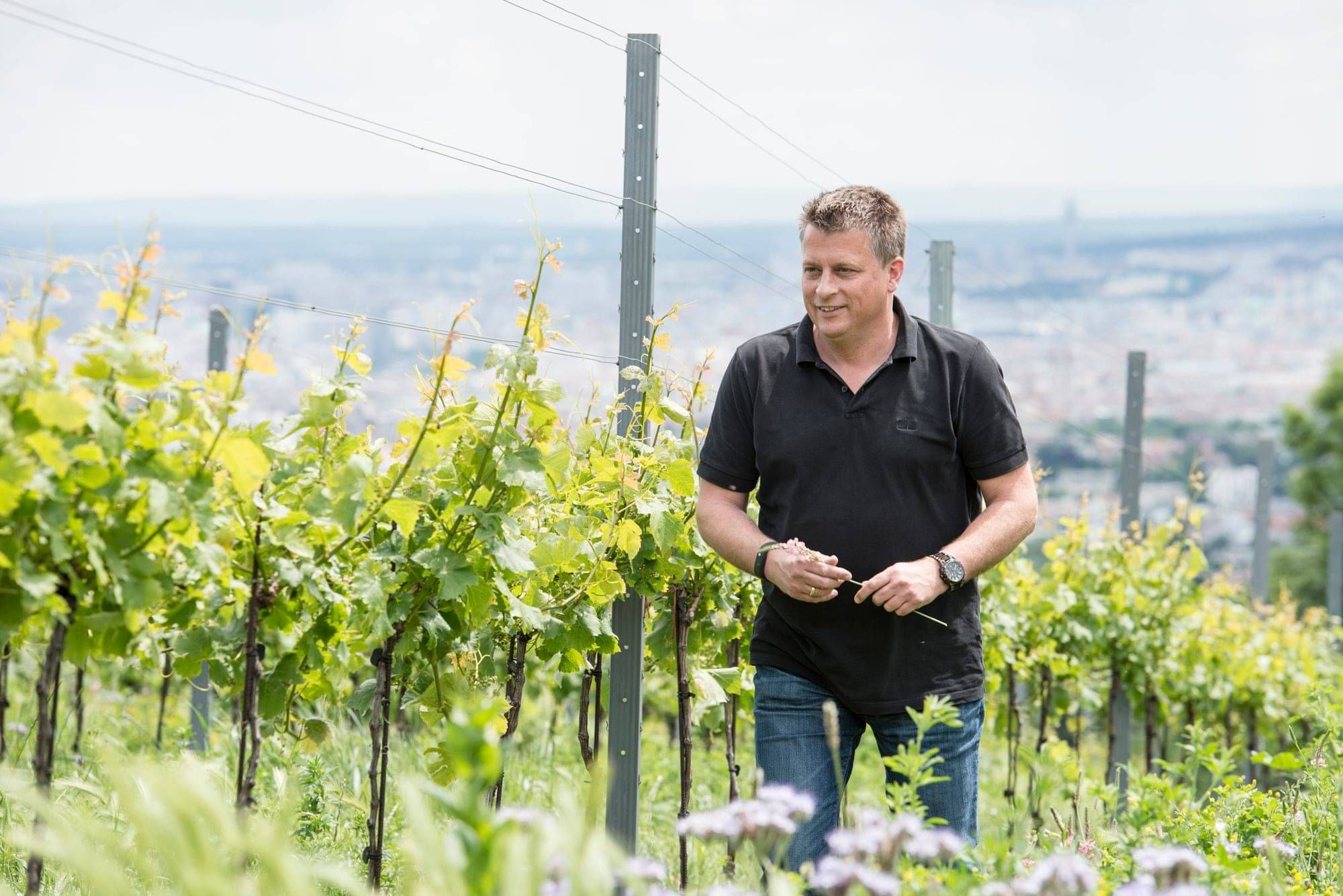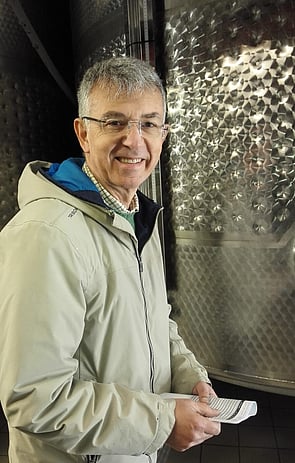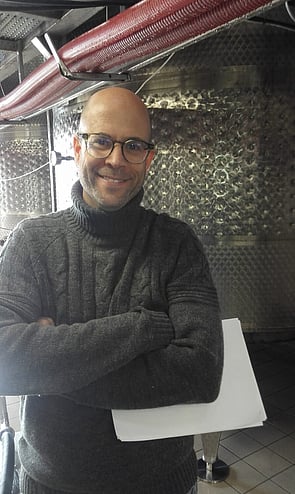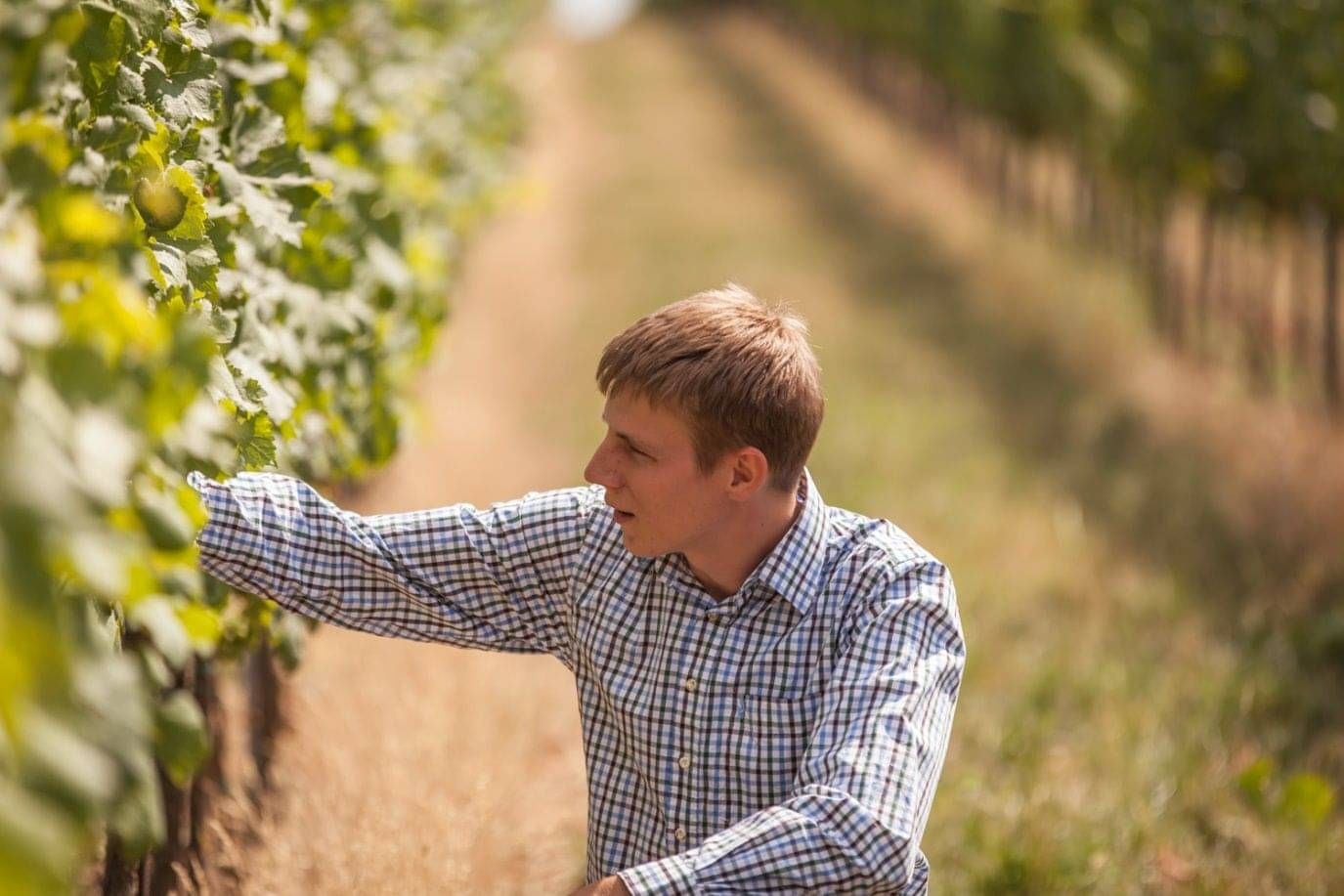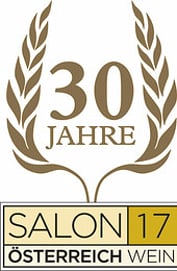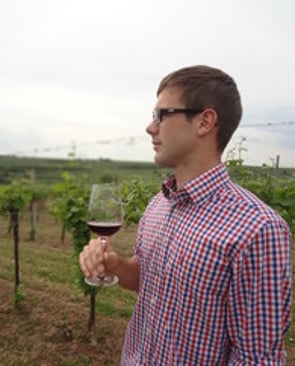unsere Winzer
Weingut Wien - Cobenzl
Vienna and wine are a unique, wonderful story. Today, Vienna is the only wine-growing region in the world located entirely within the boundaries of a major city. Thanks to its unique wine and wine tavern tradition, it continues to shape the city's atmosphere and its globally acclaimed image.
The Wien Cobenzl winery is one of Vienna's most important wineries. Under the direction of Thomas Podsednik, they produce outstanding quality wines that are highly regarded by wine lovers and experts alike. The winery has a long history and has been owned by the City of Vienna for over 100 years.
The winery cultivates approximately 60 hectares of vineyards in Grinzing, on the Nussberg, and on the Bisamberg. The focus is on traditional Viennese grape varieties: from fruity white wines such as Grüner Veltliner and Wiener Gemischter Satz DAC, to bold wines such as Pinot Blanc, and full-bodied red wines.
The vineyards, with resounding names like Ried Pfeffer, Ried Seidenhaus, and Ried Bellevue, are among the city's best locations and offer magnificent views of the metropolis. This panoramic view is not only taken literally at the winery, but is part of its philosophy: it was one of the first wineries in Austria to receive the prestigious Sustainable Austria award. "From the grape harvest to the aging of the wines to bottling, the entire production process is examined for its contribution to sustainability," explains Podsednik. The economical use of water and energy is viewed just as positively as the use of compost and biological pest control. For example, the grape berry moth, a feared pest in viticulture, is controlled naturally and efficiently with environmentally friendly pheromone traps, rather than conventional insecticides.
Weingut TALAMONTI - Loreto Aprutino
The Talamonti estate has its roots in the Abruzzo region, in a landscape characterized by authentic and unspoiled nature. The vineyards benefit from a unique terroir and the privilege of an exceptional microclimate, both of which underpin the international reputation of the municipality of Loreto Aprutino as a particularly favorable region for viticulture.
A very good wine comes from a very good grape. Therefore, the vine determines the pulse of everything we do. At Talamonti, the people work in synergy with it, adapting methods and timing to the specific characteristics of the terroir in order to preserve the identity and typicality of the grape variety. The Talamonti winery extends its own grape production to a vineyard area of 32 hectares.
The vineyards surround the Talamonti estate and are located at an altitude of approximately 300 meters above sea level, facing southeast in the Tavo River valley. Talamonti's wooden barrels rest in the barrel cellar and are sorted according to their geographical origin, age, and roasting. The preference for certain formats (300 and 3,400 liters) and the specific origin of the staves (France, Austria, the USA, and Hungary) is the result of a thorough research project conducted in collaboration with the Faculty of Oenology at the University of Teramo, which examined the development of Montepulciano d'Abruzzo in different oak barrels.
The delicate bottling phase is carried out in-house by the winery using a modern and functional bottling line. Talamonti also has its own analytical laboratory, which allows for continuous health monitoring of the grapes, musts, and wines throughout the entire production process.
THE CLIMATE OF LORETO APRUTINO
The climate of Loreto Aprutino is primarily influenced by the Apennine mountain range and the Adriatic Sea, both just a few kilometers away. The average annual temperature is 15°C, with extremes of 35°C in summer and -2°C in winter. Average precipitation is approximately 700 mm. While winter is moderated by the influence of the Adriatic Sea, cold air currents from the Balkans can drastically lower temperatures and trigger snowfall. This phenomenon explains the relatively harsh winter compared to other locations at the same latitude.
THE GEOMORPHOLOGY OF THE AREA
The landscape has been clearly shaped by major glacial movements over millions of years. The area around Loreto Aprutino is full of geomorphological traces typical of glacial and near-glacial environments, such as snowfields, moraines, glaciers, and rounded hillocks ("Roches moutonnées"). Studies of the soil layers have also demonstrated the influence of volcanic activity.
The most impressive aspect of Abruzzo's landscape, however, is the region's incredible biodiversity. The numerous national parks, the Sibillini Mountains to the north, the Adriatic Sea to the east, the Majella Mountains to the south, and finally the Apennine mountain range to the west, together form the boundaries of an area of breathtaking beauty and full of surprises. Loreto Aprutino is located 300 meters above sea level in a unique position for central Italy: the town is close to a geomorphological rarity, the Calderone Glacier, the southernmost glacier in Europe and the only one in the central Mediterranean.
THE TALAMONTI TEAM
The Talamonti winery is managed in the wine sector by its cellar master and oenologist Paolo Benassi. The commercial management and marketing of the winery is entrusted to Rodrigo Redmont, the family owner of the estate.
Talamonti's staff is made up of a group of young talents with great potential. We train and sensitize our entire team to cohesion in managing the company and to identify with the brand, whose ambassadors they all become. These are the future "stars" of Abruzzo, who will convey their commitment to quality to the world.
Talamonti is one of the first family-run businesses in the wine industry to invest specifically in customer satisfaction and began the certification process according to international standards (ISO 2001) in 2007. The results of our research and development are consistently communicated and verified both internally and through exchanges with experts and lovers of Abruzzo wines.
Sebastian Angerer
Winemaker Sebastian Angerer runs their winery together with his parents. Their vineyards are located in the Kamptal Valley in Lower Austria, which, thanks to its temperate climate and diverse soils, allows for a wide variety of grape varieties. Not only outstanding white wines like Grüner Veltliner and Riesling can be found here, but also excellent red wines like Zweigelt and Sankt Laurent.
The foundation for a wine's character is the interplay of soil and climate. In the Kamptal Valley, this interplay is of a very special finesse and diversity. Here, we have three types of soil (primary rock, loess, and clay), and, on the other hand, a climate that is probably found in this constellation in few places on earth. Typical for this valley, which lies at an altitude of around 200 to 300 meters, are hot days and cool nights in summer, as well as long sunny periods in autumn. These contrasting conditions give Kamptal wines their incomparable, crystal-clear, mineral character.
Mr. Angerer himself is very experimental and enjoys working in nature. Through careful observation of the plants, their environment, and the wines, as well as through various experiments, he constantly learns new things. This is what makes his job so interesting and brings him great joy.
He places great value on individual, vintage-typical wines. Every wine and every vintage should have its own special character, which can be recognized in the bottle.
He is the winner of the Austrian Salon Wine 2017
Bernd Kornherr
The winery, Benrd Kornherr, is a quality-oriented family business. The company's philosophy is to cultivate the vineyards in a natural way to bottle fruity, regionally typical, and high-quality wines.
Through targeted work in the vineyard, which begins with minimal pruning, and the many hours of sunshine, we always succeed in producing wines of the highest quality.
Thinning of the grapes regulates the harvest and thus increases quality. Natural vineyard management means that every effort is made to maintain the health of the soil (through cover crops) and the vines (through care measures).
Origin
Untermarkersdorf lies in the heart of the Weinviertel region in the Pulkau Valley. The valley's warm, dry, mild, and unique microclimate, combined with the location and soils of the vineyards, allows the wines to mature to an unparalleled perfection.
